-
1 EXECUTIVE SUMMARY
-
Market Attractiveness Analysis
- Global RTD Beverages Market, by Type
- Global RTD Beverages Market, by Packaging Type
- Global RTD Beverages Market, by Distribution Channel
- Global RTD Beverages Market, by Region
-
MARKET INTRODUCTION
-
Definition
-
Scope of the Study
-
Market Structure
-
Key Buying Criteria
-
Macro Factor Indicator Analysis
-
RESEARCH METHODOLOGY
-
Research Process
-
Primary Research
-
Secondary Research
-
Market Size Estimation
-
Forecast Model
-
List of Assumptions
-
MARKET DYNAMICS
-
Introduction
-
Drivers
-
Restraints
-
Opportunities
-
Challenges
-
MARKET FACTOR ANALYSIS
-
Value Chain Analysis
-
Supply Chain Analysis
-
Porter’s Five Forces Model
- Bargaining Power of Suppliers
- Bargaining Power of Buyers
- Threat of New Entrants
- Threat of Substitutes
- Intensity of Rivalry
-
GLOBAL RTD BEVERAGES MARKET, BY TYPE
-
Introduction
-
Alcoholic Beverages
- Alcoholic Beverages: Market Estimates & Forecast by Region/Country, 2023-2032
-
Non-Alcoholic Beverages
- Non-Alcoholic Beverages: Market Estimates & Forecast by Region/Country, 2023-2032
- Tea & Coffee
- Juices & Nectars
- Carbonated Soft Drinks
- Sports & Energy Drinks
- Others
-
GLOBAL RTD BEVERAGES MARKET, BY PACKAGING TYPE
-
Introduction
-
Bottles
- Bottles: Market Estimates & Forecast by Region/Country, 2023-2032
-
Cans
- Cans: Market Estimates & Forecast by Region/Country, 2023-2032
-
Cartons
- Cartons: Market Estimates & Forecast by Region/Country, 2023-2032
-
Others
- Others: Market Estimates & Forecast by Region/Country, 2023-2032
-
GLOBAL RTD BEVERAGES MARKET, BY DISTRIBUTION CHANNEL
-
Introduction
-
Store-Based
- Store-Based: Market Estimates & Forecast by Country, 2023-2032
- Supermarket and Hypermarket
- Convenience Stores
- Others
-
Non-Store-Based
- Non-Store-Based: Market Estimates & Forecast by Region/Country, 2023-2032
-
GLOBAL RTD BEVERAGES MARKET, BY REGION
-
Introduction
-
North America
- Market Estimates & Forecast by Type, 2023-2032
- Market Estimates & Forecast by Packaging Type, 2023-2032
- Market Estimates & Forecast by Distribution Channel, 2023-2032
- Market Estimates & Forecast by Country, 2023-2032
- US
- Canada
- Mexico
-
Europe
- Market Estimates & Forecast by Type, 2023-2032
- Market Estimates & Forecast by Packaging Type, 2023-2032
- Market Estimates & Forecast by Distribution Channel, 2023-2032
- Market Estimates & Forecast by Country, 2023-2032
- Germany
- UK
- France
- Spain
- Italy
- Rest of Europe
-
Asia-Pacific
- Market Estimates & Forecast by Type, 2023-2032
- Market Estimates & Forecast by Packaging Type, 2023-2032
- Market Estimates & Forecast by Distribution Channel, 2023-2032
- Market Estimates & Forecast by Country, 2023-2032
- China
- Japan
- India
- Australia & New Zealand
- Rest of Asia-Pacific
-
Rest of the World
- Market Estimates & Forecast by Type, 2023-2032
- Market Estimates & Forecast by Packaging Type, 2023-2032
- Market Estimates & Forecast by Distribution Channel, 2023-2032
- Market Estimates & Forecast by Region, 2023-2032
- South America
- Middle East
- Africa
-
COMPETITIVE LANDSCAPE
-
Introduction
-
Competitive Benchmarking
-
Development Share Analysis
-
Key Developments & Growth Strategies
-
COMPANY PROFILES
-
The Coca-Cola Company
- Company Overview
- Financial Overview
- Products Offered
- Key Developments
- SWOT Analysis
- Key Strategies
-
Tata Global Beverages Limited
- Company Overview
- Financial Overview
- Products Offered
- Key Developments
- SWOT Analysis
- Key Strategies
-
PepsiCo, Inc.
- Company Overview
- Financial Overview
- Products Offered
- Key Developments
- SWOT Analysis
- Key Strategies
-
Suntory Holdings Limited
- Company Overview
- Financial Overview
- Products Offered
- Key Developments
- SWOT Analysis
- Key Strategies
-
The Brown-Forman Corporation
- Company Overview
- Financial Overview
- Products Offered
- Key Developments
- SWOT Analysis
- Key Strategies
-
Red Bull GmbH
- Company Overview
- Financial Overview
- Products Offered
- Key Developments
- SWOT Analysis
- Key Strategies
-
Heineken N.V.
- Company Overview
- Financial Overview
- Products Offered
- Key Developments
- SWOT Analysis
- Key Strategies
-
Anheuser-Busch InBev SA/NV
- Company Overview
- Financial Overview
- Products Offered
- Key Developments
- SWOT Analysis
- Key Strategies
-
Nestlé S.A.
- Company Overview
- Financial Overview
- Products Offered
- Key Developments
- SWOT Analysis
- Key Strategies
-
Starbucks Corporation
- Company Overview
- Financial Overview
- Products Offered
- Key Developments
- SWOT Analysis
- Key Strategies
-
Danone S.A.
- Company Overview
- Financial Overview
- Products Offered
- Key Developments
- SWOT Analysis
- Key Strategies
-
Welch Foods Inc.
- Company Overview
- Financial Overview
- Products Offered
- Key Developments
- SWOT Analysis
- Key Strategies
-
Snapple Beverage Corp
- Company Overview
- Financial Overview
- Products Offered
- Key Developments
- SWOT Analysis
- Key Strategies
-
Bolthouse Farms, Inc
- Company Overview
- Financial Overview
- Products Offered
- Key Developments
- SWOT Analysis
- Key Strategies
-
Bacardi Limited
- Company Overview
- Financial Overview
- Products Offered
- Key Developments
- SWOT Analysis
- Key Strategies
-
APPENDIX
-
General Sources & References
-
List of Abbreviation
-
-
LIST OF TABLES
-
Global RTD Beverages Market, by Region, 2023-2032 (USD Million)
-
Global RTD Beverages Market, by Type, 2023-2032 (USD Million)
-
Global RTD Beverages Market, by Packaging Type, 2023-2032 (USD Million)
-
Global RTD Beverages Market, by Distribution Channel, 2023-2032 (USD Million)
-
North America: RTD Beverages Market, by Country, 2023-2032 (USD Million)
-
North America: RTD Beverages Market, by Type, 2023-2032 (USD Million)
-
North America: RTD Beverages Market, by Packaging Type, 2023-2032 (USD Million)
-
North America: RTD Beverages Market, by Distribution Channel, 2023-2032 (USD Million)
-
US: RTD Beverages Market, by Type, 2023-2032 (USD Million)
-
US: RTD Beverages Market, by Packaging Type, 2023-2032 (USD Million)
-
US: RTD Beverages Market, by Distribution Channel, 2023-2032 (USD Million)
-
Canada: RTD Beverages Market, by Type, 2023-2032 (USD Million)
-
Canada: RTD Beverages Market, by Packaging Type, 2023-2032 (USD Million)
-
Canada: RTD Beverages Market, by Distribution Channel, 2023-2032 (USD Million)
-
Mexico: RTD Beverages Market, by Type, 2023-2032 (USD Million)
-
Mexico: RTD Beverages Market, by Packaging Type, 2023-2032 (USD Million)
-
Mexico: RTD Beverages Market, by Distribution Channel, 2023-2032 (USD Million)
-
Europe: RTD Beverages Market, by Country, 2023-2032 (USD Million)
-
Europe: RTD Beverages Market, by Type, 2023-2032 (USD Million)
-
Europe: RTD Beverages Market, by Packaging Type, 2023-2032 (USD Million)
-
Europe: RTD Beverages Market, by Distribution Channel, 2023-2032 (USD Million)
-
Germany: RTD Beverages Market, by Type, 2023-2032 (USD Million)
-
Germany: RTD Beverages Market, by Packaging Type, 2023-2032 (USD Million)
-
Germany: RTD Beverages Market, by Distribution Channel, 2023-2032 (USD Million)
-
France: RTD Beverages Market, by Type, 2023-2032 (USD Million)
-
France: RTD Beverages Market, by Packaging Type, 2023-2032 (USD Million)
-
France: RTD Beverages Market, by Distribution Channel, 2023-2032 (USD Million)
-
Italy: RTD Beverages Market, by Type, 2023-2032 (USD Million)
-
Italy: RTD Beverages Market, by Packaging Type, 2023-2032 (USD Million)
-
Italy: RTD Beverages Market, by Distribution Channel, 2023-2032 (USD Million)
-
Spain: RTD Beverages Market, by Type, 2023-2032 (USD Million)
-
Spain: RTD Beverages Market, by Packaging Type, 2023-2032 (USD Million)
-
Spain: RTD Beverages Market, by Distribution Channel, 2023-2032 (USD Million)
-
UK: RTD Beverages Market, by Type, 2023-2032 (USD Million)
-
UK: RTD Beverages Market, by Packaging Type, 2023-2032 (USD Million)
-
UK: RTD Beverages Market, by Distribution Channel, 2023-2032 (USD Million)
-
Rest of Europe: RTD Beverages Market, by Type, 2023-2032 (USD Million)
-
Rest of Europe: RTD Beverages Market, by Packaging Type, 2023-2032 (USD Million)
-
Rest of Europe: RTD Beverages Market, by Distribution Channel, 2023-2032 (USD Million)
-
Asia-Pacific: RTD Beverages Market, by Country, 2023-2032 (USD Million)
-
Asia-Pacific: RTD Beverages Market, by Type, 2023-2032 (USD Million)
-
Asia-Pacific: RTD Beverages Market, by Packaging Type, 2023-2032 (USD Million)
-
Asia-Pacific: RTD Beverages Market, by Distribution Channel, 2023-2032 (USD Million)
-
China: RTD Beverages Market, by Type, 2023-2032 (USD Million)
-
China: RTD Beverages Market, by Packaging Type, 2023-2032 (USD Million)
-
China: RTD Beverages Market, by Distribution Channel, 2023-2032 (USD Million)
-
India: RTD Beverages Market, by Type, 2023-2032 (USD Million)
-
India: RTD Beverages Market, by Packaging Type, 2023-2032 (USD Million)
-
India: RTD Beverages Market, by Distribution Channel, 2023-2032 (USD Million)
-
Japan: RTD Beverages Market, by Type, 2023-2032 (USD Million)
-
Japan: RTD Beverages Market, by Packaging Type, 2023-2032 (USD Million)
-
Japan: RTD Beverages Market, by Distribution Channel, 2023-2032 (USD Million)
-
Australia & New Zealand: RTD Beverages Market, by Type, 2023-2032 (USD Million)
-
Australia & New Zealand: RTD Beverages Market, by Packaging Type ,2023-2032 (USD Million)
-
Australia & New Zealand: RTD Beverages Market, by Distribution Channel, 2023-2032 (USD Million)
-
Rest of Asia-Pacific: RTD Beverages Market, by Type, 2023-2032 (USD Million)
-
Rest of Asia-Pacific: RTD Beverages Market, by Packaging Type, 2023-2032 (USD Million)
-
Rest of Asia-Pacific: RTD Beverages Market, by Distribution Channel, 2023-2032 (USD Million)
-
Rest of the World (RoW): RTD Beverages Market, by Country, 2023-2032 (USD Million)
-
Rest of the World (RoW): RTD Beverages Market, by Type, 2023-2032 (USD Million)
-
Rest of the World (RoW): RTD Beverages Market, by Packaging Type, 2023-2032 (USD Million)
-
Rest of the World (RoW): RTD Beverages Market, by Distribution Channel, 2023-2032 (USD Million)
-
South America: RTD Beverages Market, by Type, 2023-2032 (USD Million)
-
South America: RTD Beverages Market, by Packaging Type, 2023-2032 (USD Million)
-
South America: RTD Beverages Market, by Distribution Channel, 2023-2032 (USD Million)
-
Middle East: RTD Beverages Market, by Type, 2023-2032 (USD Million)
-
Middle East: RTD Beverages Market, by Packaging Type, 2023-2032 (USD Million)
-
Middle East: RTD Beverages Market, by Distribution Channel, 2023-2032 (USD Million)
-
Africa: RTD Beverages Market, by Type, 2023-2032 (USD Million)
-
Africa: RTD Beverages Market, by Packaging Type, 2023-2032 (USD Million)
-
Africa: RTD Beverages Market, by Distribution Channel, 2023-2032 (USD Million)
-
LIST OF FIGURES
-
Global RTD Beverages Market Segmentation
-
Forecast Research Methodology
-
Five Forces Analysis of the Global RTD Beverages Market
-
Value Chain of the Global RTD Beverages Market
-
Share of the Global RTD Beverages Market in 2023, by Country (%)
-
Global RTD Beverages Market, by Region, 2023-2032,
-
Global RTD Beverages Market Size, by Type, 2023
-
Share of the Global RTD Beverages Market, by Type, 2023-2032 (%)
-
Global RTD Beverages Market Size, by Packaging Type, 2023
-
Share of the Global RTD Beverages Market, by Packaging Type, 2023-2032 (%)
-
Global RTD Beverages Market Size, by Distribution Channel, 2023
-
Share of the Global RTD Beverages Market, by Distribution Channel, 2023-2032 (%)


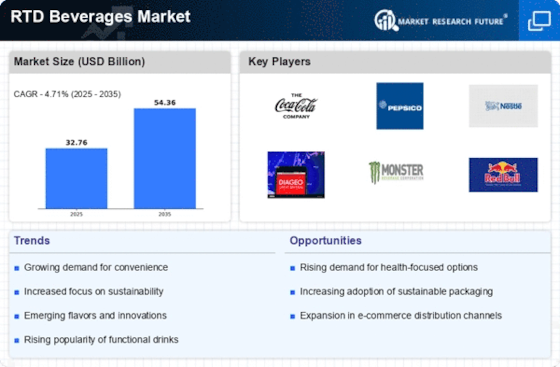
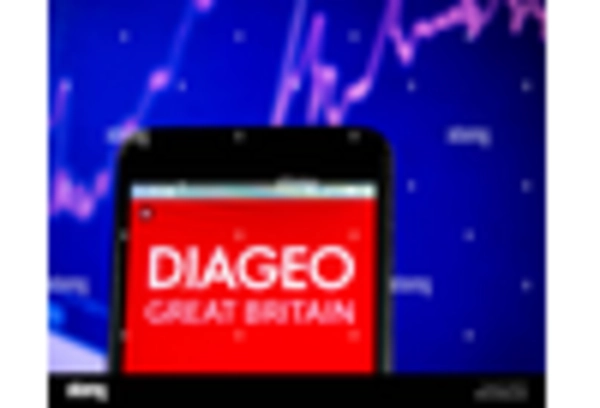
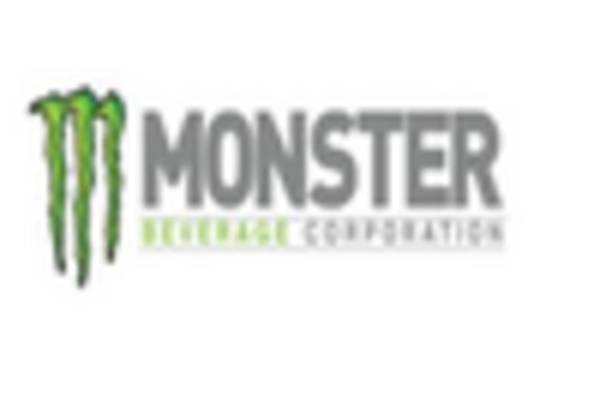
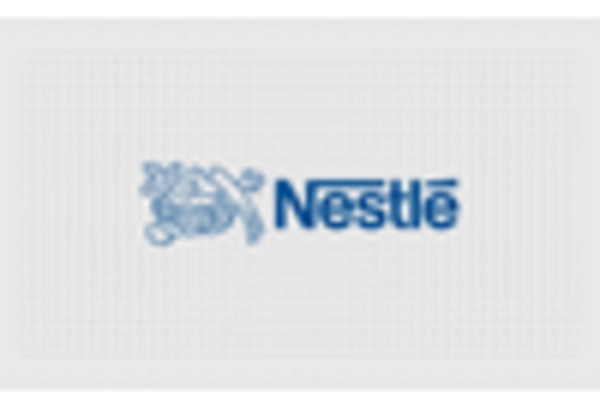
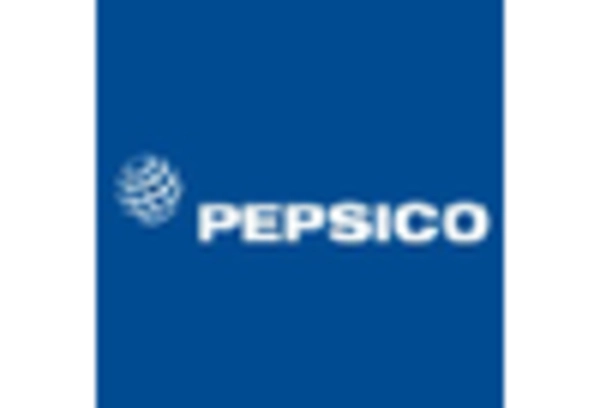
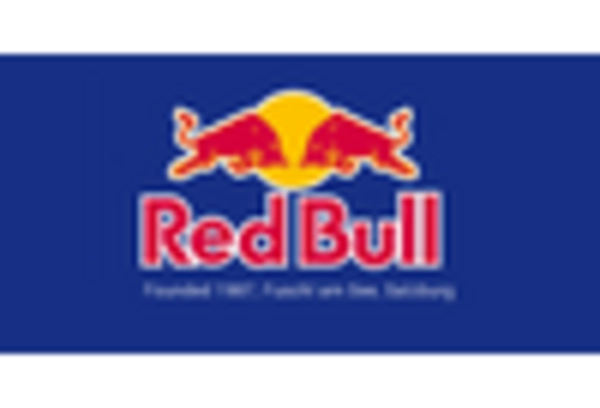
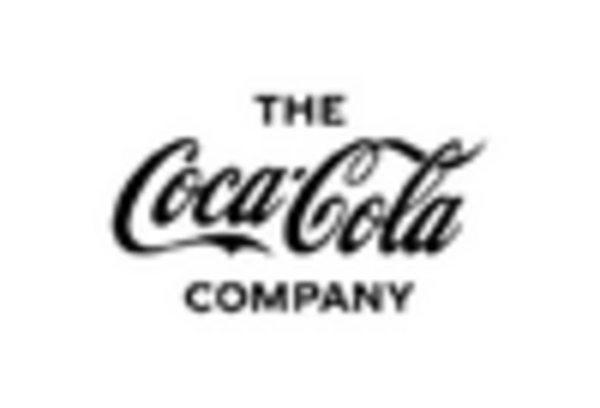









Leave a Comment